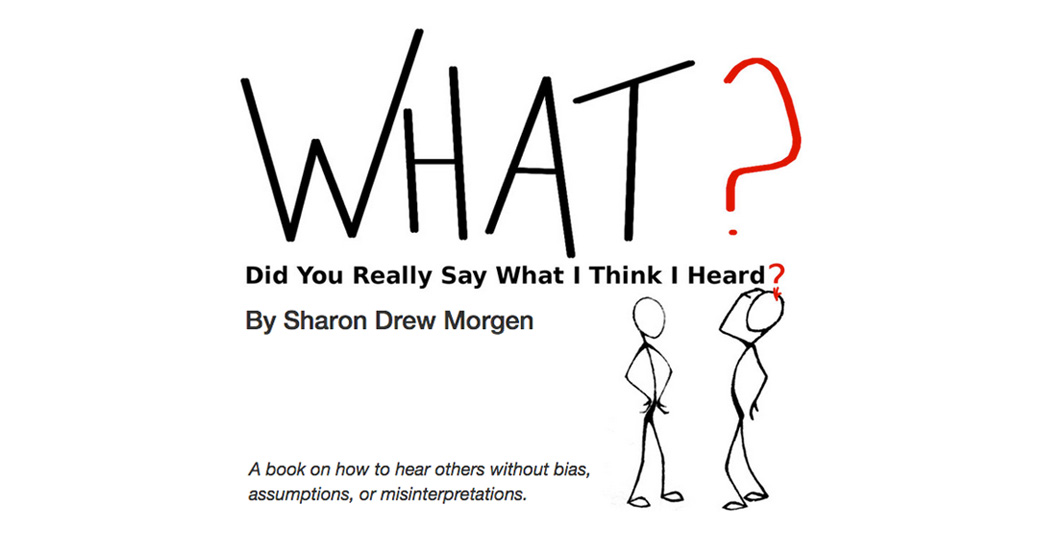Meetings: The Purpose, The Pain, The Possibility
 As business folk, we hold meetings regularly. Yet often we don’t accomplish what we set out to achieve. Why?
As business folk, we hold meetings regularly. Yet often we don’t accomplish what we set out to achieve. Why?
The Purpose
Meetings are held to accomplish a specific, beneficial outcome requiring the attendance of the right people with the right agenda.
The Problem/Pain
Often we end up with miscommunication, wasted time, incomplete outcomes, misunderstanding, lack of ownership and ongoing personnel issues – sometimes an indication of internal power and faulty communications issues.
The Possibility
With greater success we can: stimulate thinking; achieve team building, innovation, and clear communication; and efficiently complete target issues. Here are some problem areas and solutions:
People. When outcomes aren’t being met effectively it’s a people- and management problem including: fall-out, sabotage, and resistance; long execution times; exclusion of peripheral people; restricted creativity and communication; exacerbated power and status issues. Are the most appropriate people (users, decision makers, influencers) invited? All who have good data or necessary questions?
- Rule: unless all – all – relevant people show up for the meeting, cancel it. It’s impossible to catch people up or have them collaborate, add creative thoughts, or discuss annoyances. Once it’s known that meetings aren’t held unless all are present, the frequency, responsibility, and motives shift.
- Rule: unless all – all – of the people who will touch the outcome from the meeting’s goals are in some way represented, the outcome will not reflect the needs of all causing fallout later, with resistance, sabotage or a diminished outcome.
Agenda. No hidden agendas! Recipients of potential outcomes must be allowed to add agenda items prior to the meeting.
- Rule: unless all – all – of the items of ultimate concern are on the agenda, the meeting will be restricted to meet the needs of a few with unknown consequence (resistance and sabotage).
Action. Too often, action items don’t get completed effectively. How do action items get assigned or followed up? What happens if stuff’s not done when agreed? How can additional meetings be avoided?
- Rule: put a specific, consensual, and supervised method in place to ensure action items get accomplished as promised.
- Rule: as meeting begins, get consensus on what must be accomplished for a successful outcome. This initial discussion may change agenda items or prioritize them, detect problems, assumptions, resistance before action items are assigned.
Discussion. How long do people speak? How do conversations progress? How do the proceedings get recorded? What is the format for discussions? How is bias avoided?
- Rule: record (audio) each meeting so everyone who attends can have it available later. Folks who didn’t attend are not privy to this audio. (See People above).
- Rule: design a time limit for speaking, and rules for topics, presentations, discussions, cross talk.
- Rule: include periods of silence for thought, notes, reflection.
Understanding. Does everyone take away the same interpretation of what happened? How do you know when there have been miscommunications or misunderstandings?
- Rule: unless everyone has the same perception of what happened for each topic, there is a tendency for biased interpretation that will influence a successful outcome.
- Rule: one person (on rotation) should take notes, and repeat the understanding of what was said to get agreement for each item before the next item is tackled. This is vital, as people listen with biased filters and make flawed assumptions of what’s been said/agreed.
Transparency. Agendas should be placed online, to be read, signed-off, and added to.
- Rule: whomever is coming to the meeting must know the full agenda.
- Rule: everyone responsible for an action item must be listed with time lines, names of those assisting, and outcomes.
Accomplishments. Are items accomplished in a suitable time frame? What happens when they aren’t?
- Rule: for each action item, participants must sign off on an agreeable execution. A list of the tasks, time frames, and people responsible must accompany each item, and each completed task must be checked off online so progress is accountable.
- Rule: a senior manager must be responsible for each agenda item. If items are not completed in a timely way, the manager must write a note on the online communication explaining the problem, the resolution, and new time frame.
Meetings can be an important activity for collaboration and creativity if they are managed properly and taken as a serious utilization of time and output. Ask yourself: Do you want to meet? Or get work accomplished collaboratively?
__________
Sharon Drew Morgen is the author most recently of What? Did you really say what I think I heard?, as well as self-learning tools and an on-line team learning program – designed to both assess listening impediments and encourage the appropriate skills to accurately hear what others convey, to avoid biases, misinterpretation, and misunderstanding.
Sharon Drew is also the author of the NYTimes Business Bestseller ‘Selling with Integrity’ and 7 other books on how decisions get made, how change happens in systems, and how buyers buy. She is the developer of Buying Facilitation® a facilitation tool for sellers, coaches, and managers to help Others determine their best decisions and enable excellence. Her award winning blog sharondrewmorgen.com has 1500 articles that help sellers help buyers buy. Sharon Drew has recently developed 3 new programs for start ups.
She can be reached at sharondrew@sharondrewmorgen.
Sharon Drew Morgen January 10th, 2017
Posted In: Communication

